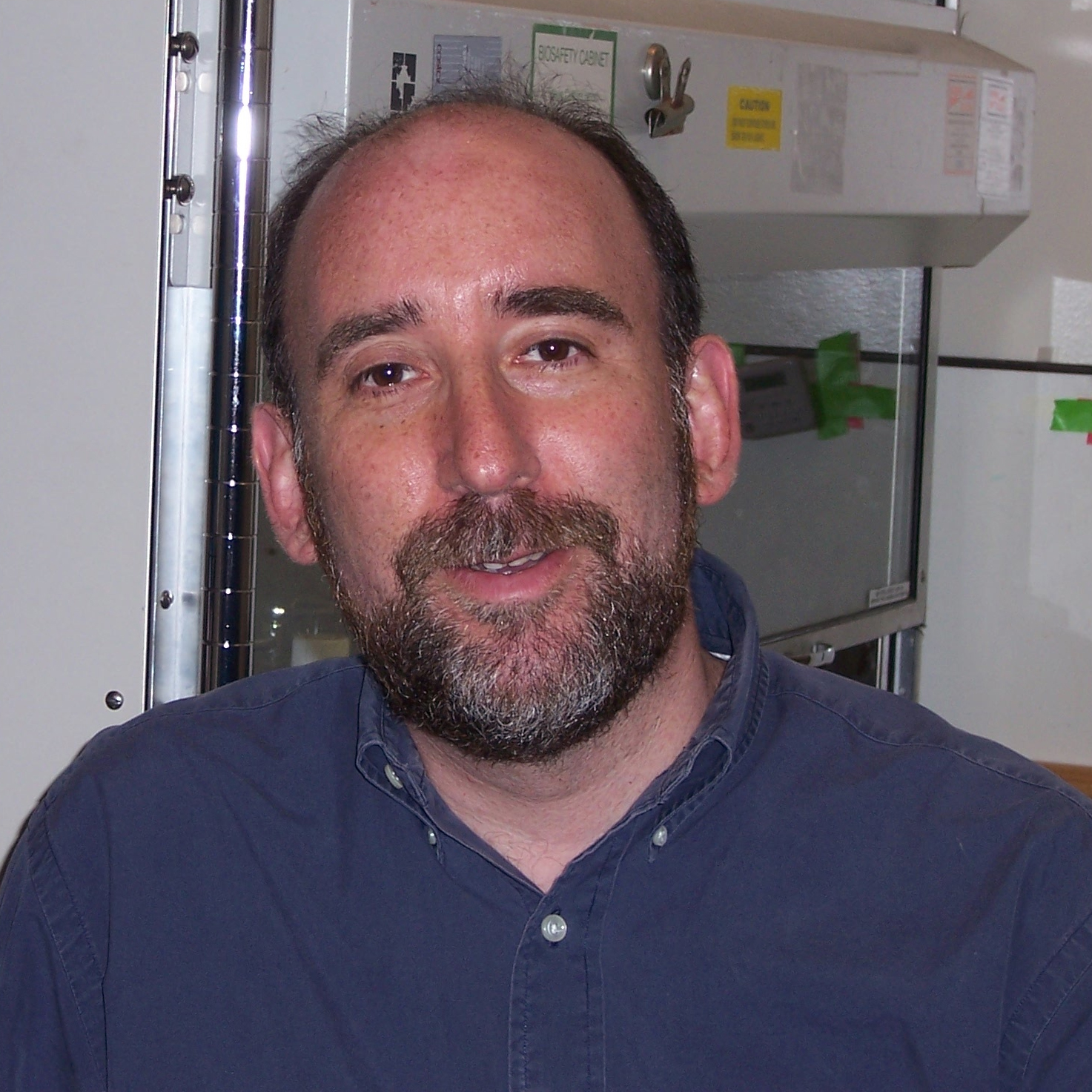
Frederic G. Barr, M.D., Ph.D.
- Center for Cancer Research
- National Cancer Institute
- Building 10 - Magnuson CC, Room 2S235D
- Bethesda, MD 20892-1500
- 301-480-7176
- barrfg@mail.nih.gov
RESEARCH SUMMARY
Dr. Barr’s research laboratory uses a multidisciplinary approach involving genomics and bioinformatics along with cell culture and animal models to study recurrent chromosomal alterations, such as translocations and amplification, in cancer. His laboratory focuses on rhabdomyosarcoma, a family of myogenic soft tissue cancers usually occurring in children, to investigate the genetic basis, biological consequences, and therapeutic implications of chromosomal alterations in these cancers. In addition, Dr. Barr works closely with clinicians at the National Cancer Institute and in the Children's Oncology Group (the nationwide multi-institutional group conducting treatment trials for pediatric cancer) to investigate the utility of these recurrent chromosomal alterations as biomarkers for diagnosis and management.
Areas of Expertise

Frederic G. Barr, M.D., Ph.D.
Research
Dr. Barr's research interest is molecular genetics of cancer with a focus on recurrent chromosomal alterations in sarcomas. His research team has most recently been conducting a multidisciplinary approach to understand the biological consequences of these genetic events in rhabdomyosarcoma, a family of pediatric soft tissue cancers. Major focal points of this research program are fusions of the PAX3 or PAX7 gene with the FOXO1 (FKHR) gene to generate fusion oncoproteins, the amplification of several oncogenic loci, and genome-wide changes in DNA methylation. These studies revealed that the gene fusions result in an aberrant gene expression program that contributes to tumorigenesis. Amplification events involving known and new candidate oncogenes occur in specific gene fusion subsets and are associated with distinct clinical outcomes. Distinct DNA methylation patterns are associated with the fusion-positive and fusion-negative subtypes of rhabdomyosarcoma. Current studies are examining tumorigenic effects, functional domains, downstream targets, regulation of gene expression, and clinical applications.
Publications
- Bibliography Link
- View Dr. Barr's PubMed Summary.
CDK4 amplification reduces sensitivity to CDK4/6 inhibition in fusion-positive rhabdomyosarcoma
PAX3-FOXO1 is essential for tumour initiation and maintenance but not recurrence in a human myoblast model of rhabdomyosarcoma
Relationship of DNA methylation to mutational changes and transcriptional organization in fusion-positive and fusion-negative rhabdomyosarcoma
A Fusion Transcription Factor-Driven Cancer Progresses to a Fusion-Independent Relapse via Constitutive Activation of a Downstream Transcriptional Target
Serine hydroxymethyltransferase 2 expression promotes tumorigenesis in rhabdomyosarcoma with 12q13-q14 amplification
Biography

Frederic G. Barr, M.D., Ph.D.
Dr. Barr received his undergraduate education at Williams College, and then attended Washington University School of Medicine, where he obtained his M.D. and Ph.D. degrees. Subsequently, he received residency training in anatomic pathology at the Hospital of the University of Pennsylvania and performed postdoctoral research in the Division of Human Genetics and Molecular Biology at the Children's Hospital of Philadelphia. Before coming to the NIH, Dr. Barr was a faculty member in the Department of Pathology and Laboratory Medicine at the University of Pennsylvania School of Medicine. Dr. Barr was recruited to the NIH in 2011 as a Senior Investigator and Deputy Branch Chief in the Laboratory of Pathology, and was subsequently appointed Medical Director and Associate Residency Program Director. In addition to his research activities, Dr. Barr serves on the Steering Committee of the Soft Tissue Sarcoma Committee of the Children's Oncology Group, and recently completed a 7-year term as the Senior Associate Editor for the Journal of Molecular Diagnostics.
Job Vacancies
We have no open positions in our group at this time, please check back later.
To see all available positions at CCR, take a look at our Careers page. You can also subscribe to receive CCR's latest job and training opportunities in your inbox.
Team
News
Learn more about CCR research advances, new discoveries and more
on our news section.

